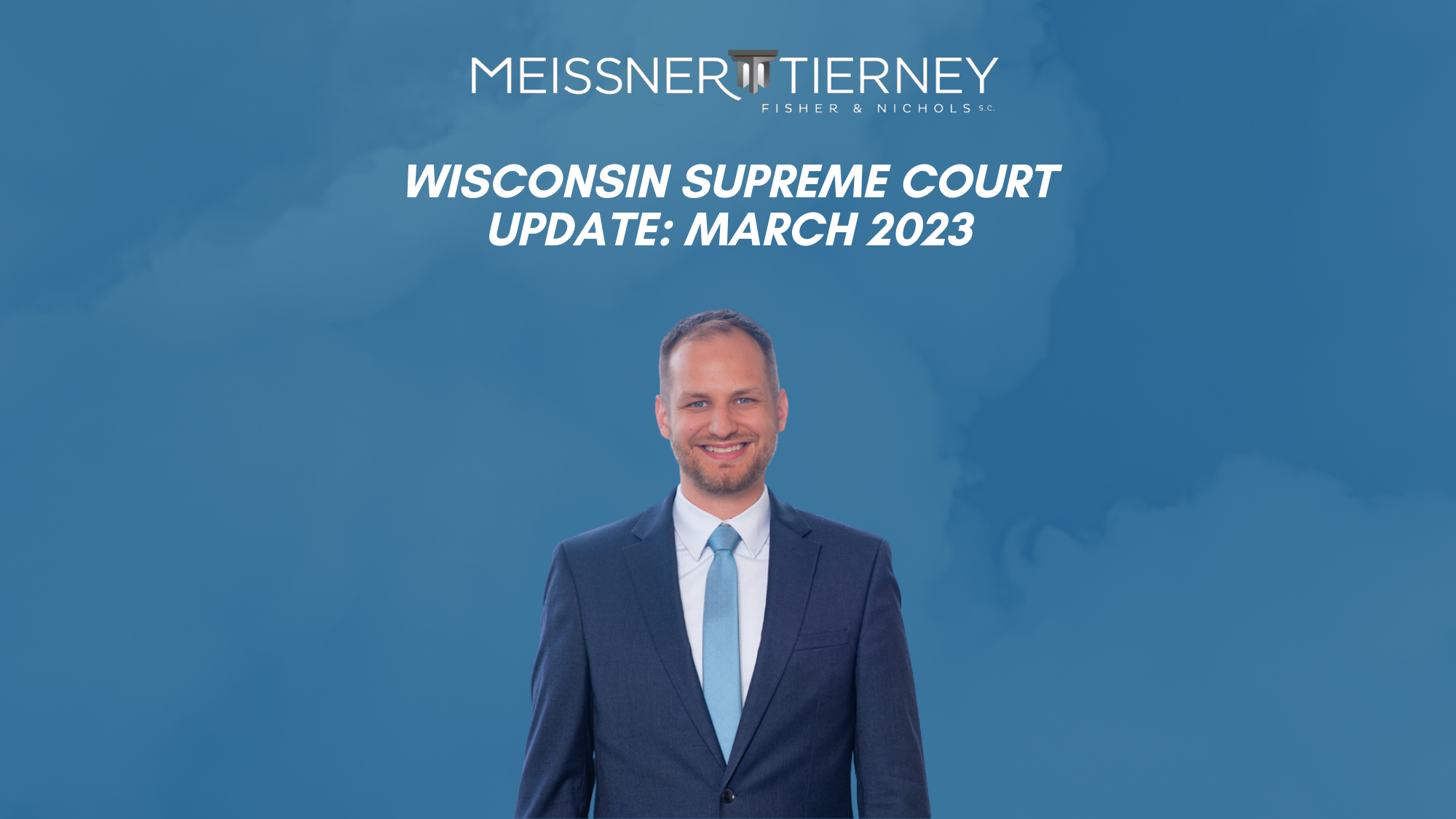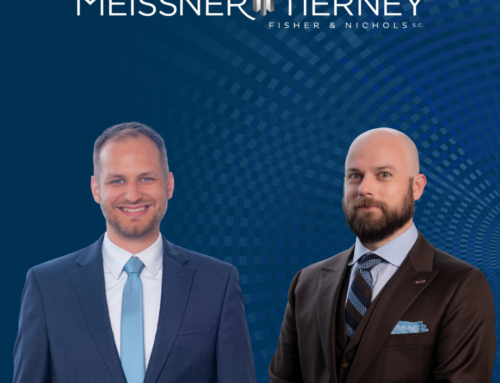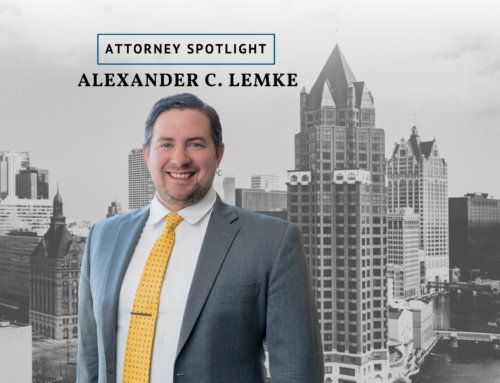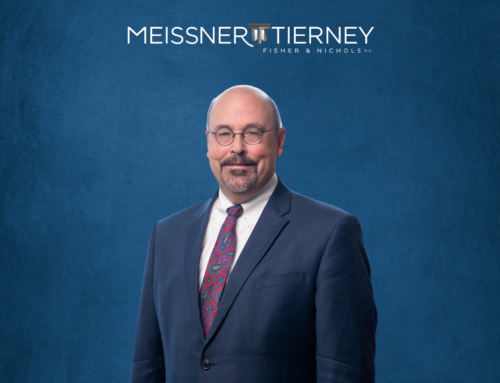Taxation is the theme of this month’s supreme court update. The court decided two tax cases in the past month, and it has another on its March oral argument calendar. We’ll take a look at those, plus a couple of other civil cases set for argument in the coming weeks.
Cases Decided
Lowe’s Home Centers, LLC v. City of Delavan, No. 2019AP1987
Taxation
Decision Filed: February 16, 2023
Public Citation: 2023 WI 8
The court handed municipalities a win on the long-simmering, so-called “dark store” issue. When assessing properties based on sales of comparable properties (a “tier 2” assessment in the relevant lingo), the Wisconsin Property Assessment Manual directs assessors to “avoid using sales of improved properties that are vacant or distressed as comparable sales unless the subject property is similarly vacant or distressed.” In this case, Lowe’s argued the City of Delavan’s tax assessment of one of its stores was excessive because the city’s assessor excluded from its sales comparison analysis certain properties that had been vacant for some time.
The circuit court rejected Lowe’s challenge, finding the city’s selection of comparable properties more credible than Lowe’s proposed comparable properties, which included several vacant properties. The supreme court affirmed in a six-justice majority opinion authored by Justice Ann Walsh Bradley. It held that the circuit court permissibly exercised its discretion when it concluded the vacant stores Lowe’s relied on were not especially helpful indicators of the value of its occupied store. The court emphasized that its decision was limited to the facts of this case and that the Assessment Manual does not categorically prohibit consideration of vacant properties as comparable to occupied properties.
Justice Rebecca Grassl Bradley authored a concurring opinion joined by Justice Roggensack. She agreed with the decision to affirm the city’s assessment, but, in her view, the question of whether a property is dark, distressed, or otherwise noncomparable presents a question of law rather than fact.
Citation Partners, LLC v. DOR, No. 2020AP1683
Taxation
Decision Filed: March 1, 2023
Public Citation: 2023 WI 16
Our second tax case of the month involves the attempted application of a sales tax exemption to lease payments for an airplane. Citation Partners, LLC owns and leases a Cessna Citation airplane. Under its lease agreements, Citation Partners is responsible for servicing and maintaining the airplane. In turn, the lessees “reimburse” Citation Partners for the maintenance costs as part of their regular lease payments. The court considered whether the portions of the lease payments that cover Citation Partners’ maintenance costs are exempt from sales tax.
Generally, under Wis. Stat. § 77.51(15b), leases of tangible personal property are taxed based on the “total amount of consideration” for which the property is leased, without deducting the lessor’s costs of owning and maintaining the property. But another pair of statutes, Wis. Stat. §§ 77.52(2)(a)10. and 77.54(5)(a)3., create tax exemptions for purchases of aircraft service and parts. Citation Partners argued these aircraft service and parts exemptions apply to the portion of the lease payments that reimburse Citation Partners for the airplane’s maintenance expenses.
In a crisp, 12-page opinion by Justice Dallet, the court rejected Citation Partners’ argument. It explained that although Citation Partners itself could claim the exemptions for its own purchases of aircraft service and parts, it may not then turn around and again apply the exemptions to the lease payments it receives from its lessees. Justice Roggensack authored a dissent joined by Chief Justice Ziegler and Justice Rebecca Grassl Bradley. In their view, the aircraft service and parts exceptions are written broadly enough to cover the lease payments.
Up for Review
Wisconsin Property Taxpayers, Inc. v. Town of Buchanan, No. 2022AP1233
Taxation
Oral Argument: March 13
The third and final tax case concerns property taxes and levy limits. In an effort to increase revenue to pay for road construction, the Town of Buchanan in 2019 established a “transportation utility district.” Then, to fund the district, the town began charging a “transportation utility fee” on all the developed property in the town. Importantly, Buchanan took the view that the fees collected were not subject to the town’s levy limit. Wisconsin Property Taxpayers, an organization of taxpayers, sought a declaration that the town’s tax scheme was illegal for three reasons: (1) It was not authorized by any statute; (2) It violates the town’s levy limit; and (3) It violates the Wisconsin Constitution’s Uniformity Clause. The circuit court awarded declaratory relief, holding that charging the fees improperly exceeded the town’s levy limit. Before the supreme court, the town contends the fees are authorized by Wis. Stat. § 66.0827(2), which permits municipalities to establish utility districts, and that charging the fees does not otherwise violate state statutory and constitutional law governing taxation.
Miller v. Zoning Board of Appeals of the Village of Lyndon Station, No. 2021AP1764
Zoning
Oral Argument: March 13
Can your mom, who happens to be on the village board, vote on whether to rezone a parcel of property you own? In this case, a village resident seeks to overturn the village’s decision to rezone a parcel where the parcel’s owner was the daughter of the village board member who cast the deciding vote rezoning the parcel. Under Wis. Stat. § 19.59(1)(c), local public officials generally may not take “any action substantially affecting a matter in which . . . a member of his or her immediate family . . . has a substantial financial interest.” But, the next paragraph of the statute excepts from that rule “official action with respect to any proposal to modify a county or municipal ordinance.” Relying on that exception, the court of appeals held that the challenging village resident had no right to an impartial decisionmaker because rezoning involves amendments to municipal ordinances. The supreme court will consider whether the due process requirements of the U.S. or Wisconsin constitutions require a higher degree of impartiality than does the statute.
Pepsi-Cola Metropolitan Bottling Co. v. Employers Insurance Co. of Wausau, No. 2021AP635
Insurance
Oral Argument: March 15
MTFN has a representational interest in this case. Accordingly, the discussion here is limited to a brief summary and does not offer commentary on the case.
This insurance case calls upon the court to determine the enforceability of consent-before-assignment provisions in third-party liability policies. The court will also consider whether the liability policies at issue were validly assigned to successor corporations in the years following their issuance. In a 2-1 decision, the court of appeals declined to enforce the consent-before-assignment provisions and held that the policies were properly assigned.
New to the Docket
Nothing new to report.





